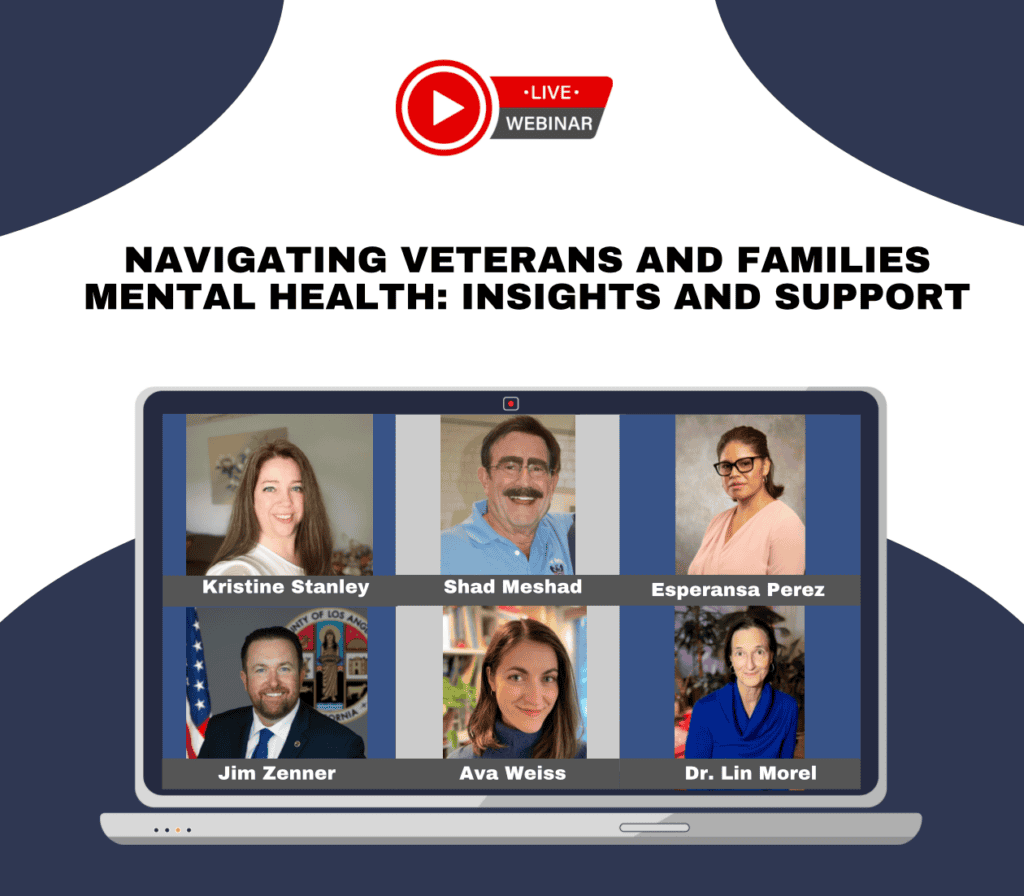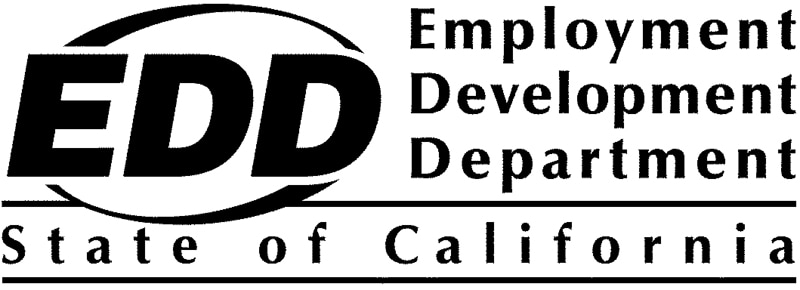Our Lifeline for Vets…over 400,000 calls so far
The National Veterans Foundation’s Lifeline for Vets is a one-stop, vet-to-vet resource for Veterans transitioning from the military to civilian life. We take suicide crisis calls, as well as calls from veterans looking for resources and information on benefits, employment, counseling, financial assistance, and any other issue the veteran might be facing.
Georgia – A woman vet called the Lifeline for Vets in crisis, with suicidal thoughts. She was homeless and suffering from MST (Military Sexual Trauma). Because of the MST she had been discharged with an OTH (Other Than Honorable) discharge, which made it harder for her to get housing, employment and services. One of our woman counselors, Mary Ann Mayer, called around her city for a day and a half before she found transitional housing and a program. The veteran is now housed, in a program, and currently working with someone to upgrade her status. Our counselor was in touch with her for a little over a week … 7 working days while she was in transition. That kind of aftercare goes a long way.
California – A suicidal patient referred from a colleague in Ojai called Shad Meshad, who spent an hour on the phone listening to the vet. When the vet was calmer, Shad put him on hold for a moment to call Mike Young, who runs the Vet Center in San Luis Obispo.
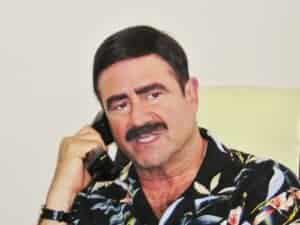
NVF President & Founder Shad Meshad
Mike, who came to the NVF as an intern, later became Director of Operations before moving on to the Vet Center. Mike connected the vet to the Vet Center in Ventura, which was closer to him. The vet is now in a group, getting support from peers, and getting better. Teaming with an old colleague: an example of the safety net that keeps vets connected.
North Carolina – A suicidal woman vet called our Lifeline for Vets and conferenced with Shad Meshad and Leaphy Khim, NVF Women Veteran Outreach Coordinator. They got her history and the next day Leaphy and Mary Ann called back with more resources. Mary Ann was able to locate a counselor who was an MST specialist at a local Vet Center. Best, there was a group that the vet could join and work with. Last, Shad, Leaphy and Mary Ann conferenced with her and she began checking in with us every day.
“Knowing that someone cares gives me hope,” she said. Mary Ann emphasized the importance of giving a veteran a “warm hand-off”…to someone we know is the right person to help.
Wisconsin – A woman called about her brother who was suffering from severe PTSD,
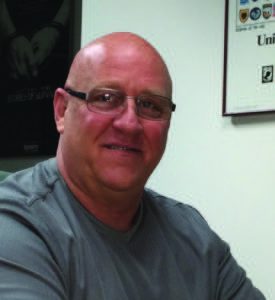
Lifeline for Vets Counselor Steve Duby
experiencing paranoia and needed help immediately. During his deployment, his team had been very successful defusing land mines. You can imagine the pressure. In the course of his work, he suffered multiple concussions (multiple brain injuries) and was later discharged with honors. Counselor Steven Duby gave her as much information as he could, speaking several times with her and he made some extra calls on her behalf. She was very appreciative and expressed it but Steve said these words were the best: Bless your heart, Steve. I wish there were more places all over the states like you guys have there. Keep up the great work and know that it’s appreciated and invaluable. Those words made everything worthwhile, Steve said.
West Virginia – An Army Veteran, disabled from his combat deployment in Iraq, called because his 2004 SUV needed repairs. The car was his only means of transportation to school and work. Repairs were estimated to be approximately $1000.00. He was able to pay about $300, but the rest of it seemed like an impossibility. Our counsel- or Wendell provided contacts to organizations directed to Post 9/11 disabled combat veterans. A week and a half later, his SUV was up and running, and he resumed his busy regular schedule of work and school.
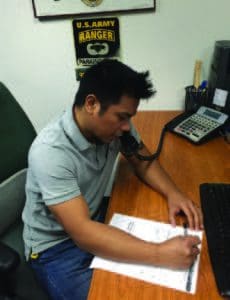
Lifeline for Vets Counselor Wendell Guillermo
California – A military spouse called, upset about the mental stability of her husband, a Marine combat veteran who has had difficulties adjusting to civilian life since his retirement in 2012. They had been living in Minnesota where their families are, but moved back to California because he’d been happy while stationed at Camp Pendleton. But nothing had changed and in some ways, things got worse. Counselor Greg Flowers listened while she wept telling him how her husband had served multiple tours in Iraq, in Fallujah. He noticed that she never mentioned Post Traumatic Stress Disorder (PTSD) so he explained the group and individual psychological programs that VA medical benefits provide.
Later on in the same day Greg spoke with another wife of a Marine combat veteran. Her husband was a combat Marine stationed at Camp Pendleton, who had also done tours in Fallujah. Greg kept thinking of the similarities to that previous call. He decided to connect the two women. Maybe they could network and support each other. And that’s exactly what happened. Greg’s heard back from both of them and he continues to stay in touch. One of them said it was a relief to know that she wasn’t alone in having these issues and just having someone to talk to who understood what she was going was through was a great help. She thanked the NVF as a whole and Greg particularly.
You can be a part of our mission to help Veterans by making a tax-deductible donation!
About the Author
SUBSCRIBE TO OUR BLOG AND NEWS!
By submitting this form, you are granting: NATIONAL VETERANS FOUNDATION INC permission to email you. You may unsubscribe via the link found at the bottom of every email. (See our Email Privacy Policy for details.)
Related Posts



